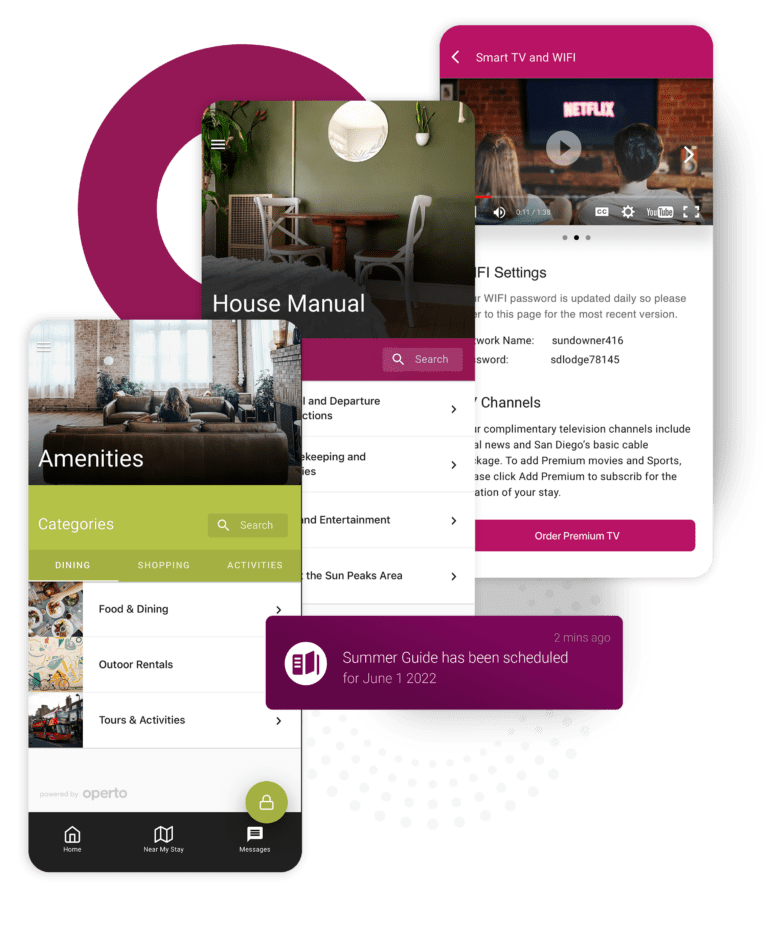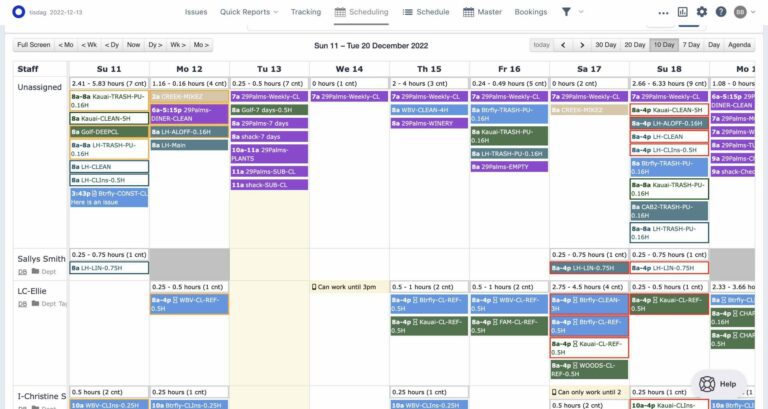Smart Tech & Hotel Risk Management: The Issues and Solutions
Despite your best efforts, there are still no tangible positive results. Why?
As competition from vacation rentals and other hotels grows stiffer and you look to adopt technology at a bigger scale, the answer to your worries lies in your preparedness for hotel risk management.
Hotel risk management is identifying and analyzing all the possible risks you face in the present and future. You also have to create a roadmap to tackle these risks and strategically shape your future growth. But as customer expectations change by the minute, drawing out this strategy is no mean feat.
So, read this article to learn more about four of the most significant risks facing hotel management and how automation tech can change the game for you.
Give guests what they want from their vacation experience
What are the main risks facing the hospitality industry?
The hospitality industry is changing in leaps and bounds, especially as a response to the pandemic and the increasing use of technology. While this change promises massive opportunity, it also comes with a fair share of risks.
Here are four of the biggest challenges facing hospitality businesses today:
- Changing expectations of modern guests
- Health and safety
- Guest behavior and security
- Staffing shortages
Changing expectations of modern guests
At a time when buying habits and customer needs have changed significantly, hotels have to reimagine their guest experience completely. A frictionless customer experience—from discovering the hotel and booking a stay to the final check-out—can be a huge differentiator for any hotel.
Many short-term rentals and major hotel chains have been quick in responding to these technology updates. So, the risk is even greater for hotels yet to pick up on these changes.
Here’s how changing guest expectations pose a risk for hotels:
- Quick communication: Your prospects and guests expect a quick and efficient mode of communication to find answers. Given the popularity of social media channels and live chat, your customers expect similar immediacy in their communications with you. In fact, 64% of customers expect hotels to interact with them in real-time.
- Support availability: Customers want to reach out to hotels at their convenience. That means 24/7 support to answer their queries and nudge them towards a purchase. This can be a major challenge for hoteliers since they might have to set up help centers and live chatbots.
- Omnichannel service: One of the biggest risks for the more traditional players in the hospitality industry is the increasing need for a seamless omnichannel experience. Guests expect to interact with a hotel on multiple mediums—whether it’s email or social media—and get consistent service.
- Personalized experience: Tailored guest experiences are quickly becoming the norm as more and more travelers base their decisions on the level of personalization in marketing. 86% of customers rely on personalized offers and deals to make their booking decisions.
- Use of technology: Technology is a massive part of the modern guest’s expectations—from service robots and voice-controlled appliances to hotel room service apps and AI-driven maintenance. Hotels have to make a solid investment to incorporate more technology to improve in-room hospitality.
In essence, hotels have no choice but to reimagine their guest experience to match expectations for communication and convenience—from the discovery stage of marketing to post-check-out outreach.
How smart guest communication can help
Smart messaging and digital guides can be a game-changer for hotels struggling to keep up with these evolving customer expectations. Instead of relying on external communication channels, you can shape your guest experience to exactly how you want it to be.
For example, with a mobile-optimized web app like Operto Guest, you can guide guests through everything they’ll experience while staying with you.
This allows you to improve guest communication by giving guests a detailed overview of all your amenities and must-have local area information. It digitizes all your interactions with a virtual front desk for self check-in and check-out. What’s more, you can use the white-label app to deliver spot-on messaging from a single dashboard while strengthening your brand.

Health and safety
Today, the health and safety expectations for hotels go well beyond preventing slips and falls and deep-cleaning the property once a month.
The post-pandemic hospitality sector demands greater focus on health, safety, and hygiene for guests and team members alike.
This preoccupation with cleanliness puts enormous pressure on hotels to implement enhanced cleaning protocols that maintain guest confidence, and reduce or eliminate high-touch interactions.
How automated scheduling can help
With an automated solution for scheduling your cleaning and maintenance tasks, you can coordinate cleans across all your units without adding to the management team’s workload.
For example, Operto Teams schedules all cleaning tasks in your Scheduling Calendar by connecting with your PMS. This also allows you to effectively track any maintenance issues or property damage from a consolidated dashboard and communicate in-app with the team.

Guest behavior and security
While the vast majority of bookings are made in good faith and pose no threat of any kind, some individuals may practice fraud or act in such a way as to cause damage to property while on site.
Here are some of the most common security threats hoteliers face today:
- Payment fraud: Hotels lose 5% of their annual revenues to fraud every year. That’s the extent of credit card fraud and theft facing hoteliers. Identity theft is another common cause of such fake payments that lead to hotel losses.
- Bad guest behavior: Destructive guest behavior is another leading cause of damage and loss for many hotels. This can take the form of property damage, theft, or disturbances that can negatively impact the vacation experience of others.
- Onsite thefts: Missing items like towels and bathrobes are commonplace in hotels. But guests are also known to take property such as batteries, remote controls, or bedside lamps. Apart from the cost of replacement, theft also creates operational issues that can have a negative effect on other people’s stay.
Guest behavior and the security setup are two of the most significant concerns for hotel owners. Not paying close attention to these two aspects can result in losses and bad guest experiences.
How guest screening and IoT can help
Hotels need robust processes, visibility over check-in and room activity, and ID verification. Here are some of the solutions you should put into practice:
- Guest screening to protect your business from possible fraud with digital ID verification. Operto Guest makes this easy by making the guest screening workflow undesruptive to the check-in process.
- Smart keyless entry with unique access codes for each booking to protect your guests and property.
- An entry log so you can review historical room access across all your units.
- Noise monitoring with an automated messaging alert whenever noise levels exceed a set threshold.
Guest screening and in-room tech solutions help to provide a seamless check-in experience for guests while also protecting their safety and your property.
Staffing
The hospitality sector in the USA has a drastic labor shortage of 300,000 fewer employees than in the pre-pandemic world. So finding adequate staff as the tourism sector rapidly returns is a major challenge across the industry.
This means hotels, restaurants, and other players in hospitality have to compete against each other to hire and retain staff from a smaller talent pool.
Here’s how staff shortages pose a risk for hotels:
- Gaps in services: Without the right team to guide and service guests, the experience you deliver could fall below their expectations. An understaffed team can only meet guests’ needs if they’re overworked, which can lead to a host of other issues, such as sickness, poor performance, or high staff turnover.
- More scope for error: The more tasks you put on an employee’s plate, the higher chances of them making mistakes. Having fewer staff members places a strain on your workflows that can further affect the guest experience.
The hospitality industry has always demanded more hands on deck to deliver the best guest experience, so staffing challenges can end up ruining your performance come high season.
How automated management solutions can help
The key to handling the risk of staff shortages is reducing your dependency on staff in the first place. This means using technology to improve the guest experience and automate your operations and processes.
For example, instead of having a whole team of staff at the front desk to welcome guests and cut keycards as they line up to check in and leave their credit card details, you can digitize the entire check-in process.
This is possible with Operto, which connects to your PMS to generate unique access codes for each booking, shares them with the guest in a white-label web app, then allows you to maintain visibility over self check-in via smart locks that connect to an all-in-one dashboard.
You can use this same infrastructure to automate cleaning schedules and inform staff whenever a guest checks out so you’re always on top of readying rooms for the next check-in.
Level up your hotel with smart risk management
The operational and business risks facing hotels may have intensified in the last two years, but tech solutions are meeting those challenges in the form of automated processes, white-label guest-facing apps, in-room smart devices, and frictionless guest experiences.
By leveraging that technology, you can therefore not only mitigate risk, but also enhance the guest experience while achieving greater operational efficiency.
More Articles
Want an operations tool that’s smooth and flexible?
